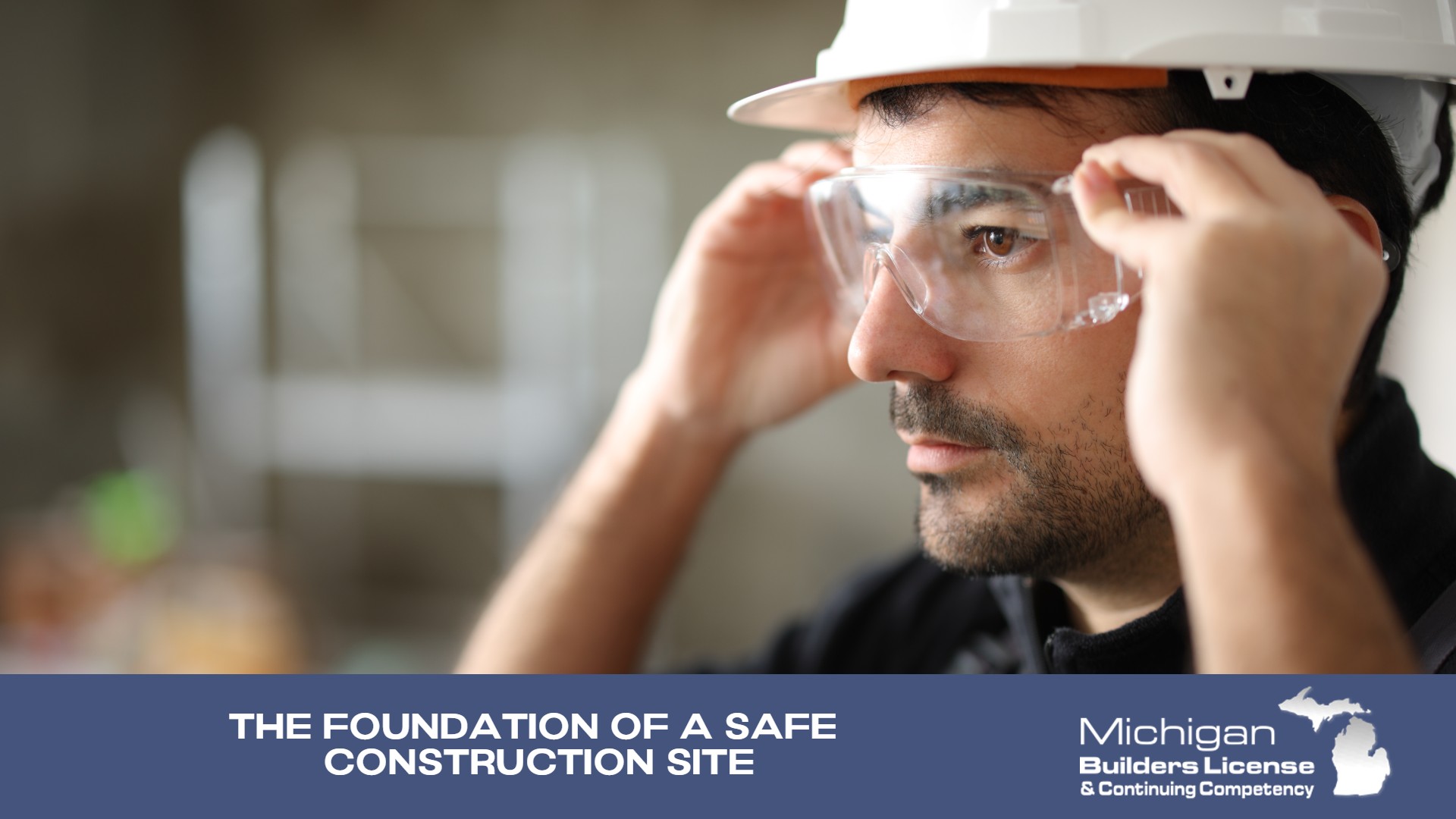For builders in Michigan, maintaining a clean job site isn't just good practice—it's essential for meeting MIOSHA standards, enhancing worker safety, and protecting your bottom line. Whether you're a seasoned pro or new to the industry, building these habits into your daily routine will pay dividends in safety, efficiency, and client satisfaction.
The state of your job site speaks volumes about the project's overall safety, efficiency, and success. A clean, well-organized site reduces the likelihood of accidents, improves productivity, and demonstrates professionalism to clients and team members alike. Poor housekeeping can lead to serious injuries, financial losses, and project delays. Implementing effective housekeeping practices is not just about aesthetics; it's a fundamental component of workplace safety.
The Impact of Poor Housekeeping on Construction Sites
Statistics highlight the significant risks associated with inadequate housekeeping:
-
Injury Rates: Falls, slips, and trips are among the leading causes of injuries in construction. In 2021, nearly 1 in 5 workplace deaths occurred in the construction industry, and 46.2% of all fatal falls, slips, and trips happened in construction.
-
Fatalities: The construction industry continues to face high rates of fatal and non-fatal injuries, with falls and slips often resulting from poor housekeeping practices.
-
Economic Costs: Investing in safety programs can yield a return of $2 or more for every $1 spent on injury prevention.
MIOSHA Housekeeping Regulations
Compliance with MIOSHA standards is essential for Michigan builders. Here are some key regulations:
-
Material Storage and Disposal: Scrap and debris must be placed in a manner that does not create hazards.
-
Work Area Maintenance: Work areas should be kept reasonably clean and free of debris to minimize slip and trip hazards.
-
Floor Conditions: Floors must be maintained free of water, oil, grease, paint, or other substances that could cause slipping or tripping hazards.
What is Job Site Housekeeping?
At its core, housekeeping on the job is about maintaining a clean, organized, and hazard-free environment. It involves two fundamental principles:
-
Regularly pick up and dispose of trash and loose materials.
-
Store materials, tools, and equipment in designated areas.
Although these two rules might seem straightforward, consistently applying them requires discipline, teamwork, and a proactive mindset.
Why Housekeeping Matters: Beyond the Basics
While the foundational rules of housekeeping are simple, their benefits are profound. Here's why every contractor and builder should prioritize job site cleanliness:
1. Enhanced Safety
A clutter-free environment minimizes the risk of trips, slips, and falls. Clear walkways and work areas ensure workers can move safely, even when carrying heavy or awkward loads.
2. Improved Efficiency
Searching for misplaced tools or navigating through debris wastes time and energy. When materials and equipment are stored systematically, workers can focus on their tasks without unnecessary interruptions.
3. Cost Savings
Accidents and injuries can lead to expensive downtime, workers' compensation claims, and project delays. A safe, organized site helps you avoid these pitfalls while maintaining a positive reputation.
4. Compliance with Regulations
Agencies like MIOSHA and OSHA have stringent requirements for workplace safety. A clean site is often compliant, reducing the risk of fines or penalties during inspections.
Practical Tips for Better Job Site Housekeeping
1. Maintain Clear Walkways and Ladders
-
Ensure aisles, stairs, and pathways are free of loose objects, debris, or slippery substances.
-
If you spot a hazard, address it immediately—whether it's sweeping up a spill or relocating materials.
2. Organize and Secure Materials
-
Stack materials like bricks, pipes, and steel rods carefully to prevent collapses.
-
Use racks or supports for rods, pipes, and other elongated materials.
-
Avoid overloading floors, platforms, or scaffolds with excessive weight.
3. Prioritize Proper Disposal
-
Schedule regular cleanups to remove scrap materials, boxes, and other trash.
-
Don’t wait for weekly overhauls—daily or hourly cleanups can make the site safer and more manageable.
4. Leverage Good Lighting
-
Poor lighting increases the risk of accidents. Make sure work areas are well-lit.
-
Report any burnt-out bulbs or malfunctioning fixtures immediately.
5. Educate and Empower Workers
-
Safety is everyone's responsibility. Encourage team members to adopt a proactive attitude toward housekeeping.
-
Workers should feel empowered to fix or report a hazard without hesitation when they see it.
Long-Term Benefits of Consistent Housekeeping
The results of good housekeeping extend beyond the immediate safety of your crew:
-
A clean site fosters a sense of pride among workers.
-
Leads to smoother project execution.
-
Reinforces trust with clients.
-
Helps you stay MIOSHA-compliant and avoid penalties.
Takeaway for Michigan Builders
For Michigan builders, keeping a job site clean isn't merely a best practice—it's a critical step toward complying with MIOSHA standards, ensuring worker safety, and safeguarding your profitability.
Whether you're a veteran in the field or just starting out, incorporating these habits into your daily workflow will yield significant benefits in safety, productivity, and customer trust.
At Michigan Builders License, we offer courses to help builders improve their skills, comply with regulations, and stay safe on the job. Enroll in our Continuing Competency or 60-hour Pre-licensing course today and build a better, safer future for your projects.
Sources:
- Bureau of Labor Statistics (BLS) Construction Deaths Due to Falls, Slips, and Trips Increased 5.9 Percent in 2021
- Michigan Occupational Safety and Health Administration (MIOSHA) Regulations Housekeeping and Disposal of Waste Materials (Part 1, General Rules) Work Area Maintenance and Housekeeping Standards (Part 57, Oil & Gas Drilling and Servicing Operations) Floor Conditions and Slip Prevention (MIOSHA R 408.17223)
- National Safety Council (NSC) - ROI on Safety Investments Every Dollar Spent on Injury Prevention Can Yield a Return of $2 or More




